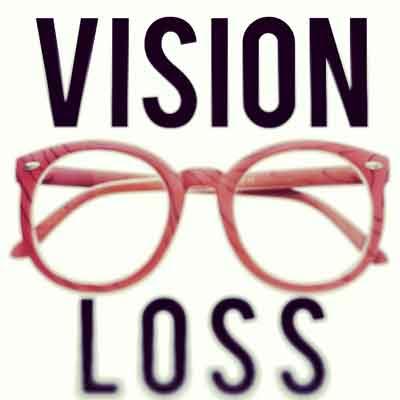- Home
- Editorial
- News
- Practice Guidelines
- Anesthesiology Guidelines
- Cancer Guidelines
- Cardiac Sciences Guidelines
- Critical Care Guidelines
- Dentistry Guidelines
- Dermatology Guidelines
- Diabetes and Endo Guidelines
- Diagnostics Guidelines
- ENT Guidelines
- Featured Practice Guidelines
- Gastroenterology Guidelines
- Geriatrics Guidelines
- Medicine Guidelines
- Nephrology Guidelines
- Neurosciences Guidelines
- Obs and Gynae Guidelines
- Ophthalmology Guidelines
- Orthopaedics Guidelines
- Paediatrics Guidelines
- Psychiatry Guidelines
- Pulmonology Guidelines
- Radiology Guidelines
- Surgery Guidelines
- Urology Guidelines
Loss of vision considered WORST ailment: JAMA Study

Washington : Loss of eyesight is considered a worst ailment compared to other conditions like loss of limb, memory, hearing, or speech, a recent study revealed.
According to the study published in the journal Ophthalmology by JAMA, the researchers analysed the results of an online poll of 2,044 adults with an average age of 46, including non-Hispanic white individuals and minority groups to understand the importance and awareness of eye health.
Among those, 63 per cent reported wearing glasses while 88 per cent believed that good vision is vital to overall health and 47 per cent rated losing vision as the worst possible health outcome.
When asked about various possible consequences of vision loss, quality of life ranked as the top concern followed by loss of independence.
Nearly two-thirds of respondents were aware of cataracts (66 per cent) or glaucoma (63 per cent); only half were aware of macular degeneration; 37 per cent were aware of diabetic retinopathy; and 25 per cent were not aware of any eye conditions.
Approximately 76 per cent and 58 per cent, respectively, identified sunlight and family heritage as risk factors for losing vision; only half were aware of smoking risks on vision loss.
"These findings underscore the importance of good eyesight to most and that having good vision is key to one's overall sense of well-being, irrespective of ethnic or racial demographic," said Adrienne W. Scott, researcher at the Johns Hopkins University School of Medicine.

Disclaimer: This site is primarily intended for healthcare professionals. Any content/information on this website does not replace the advice of medical and/or health professionals and should not be construed as medical/diagnostic advice/endorsement or prescription. Use of this site is subject to our terms of use, privacy policy, advertisement policy. © 2020 Minerva Medical Treatment Pvt Ltd